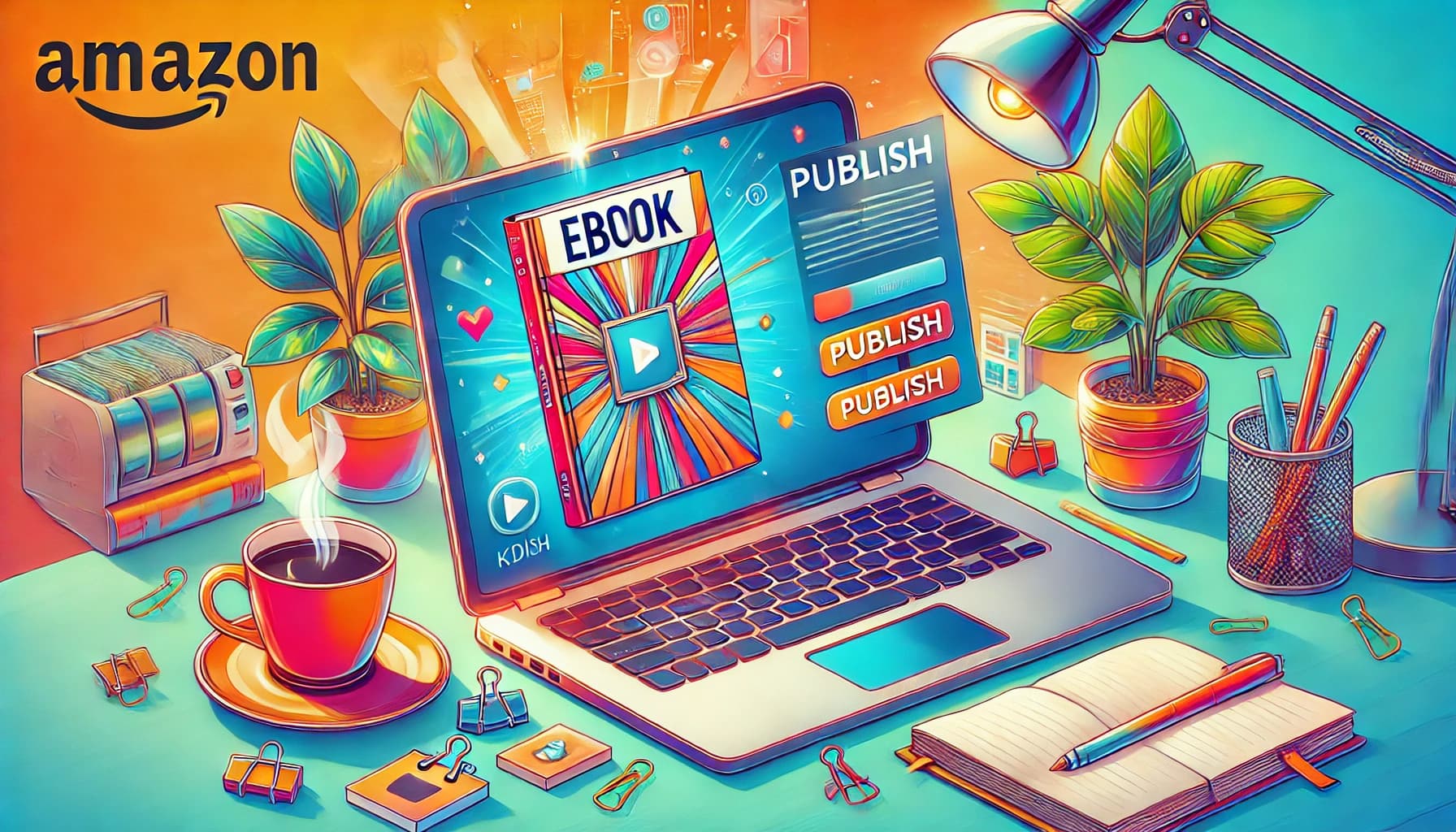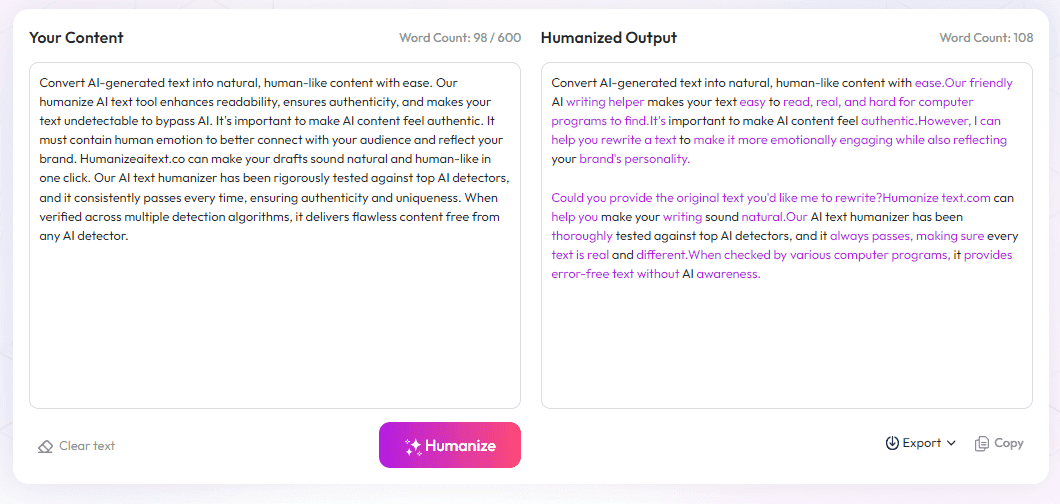Table of Contents
Many people are curious if AI will ever write novels as good as humans do. It’s a topic that feels both exciting and a little uncertain. If you keep reading, I’ll show you what’s coming next for AI-written stories and how they might change the way we enjoy books.
Stay with me, and you'll get a clear picture of what to expect from AI’s role in storytelling and what steps are coming to shape its future. You might just find yourself looking at your favorite novels with fresh eyes.
Here's a quick preview: We’ll look at what’s happening now, the key changes ahead, and what it means for writers and readers alike.
Key Takeaways
Key Takeaways
- AI is now helping writers with tasks like plotting, editing, and generating ideas, making the process faster and sparking creativity.
- A growing number of authors and publishers use AI tools, which are becoming essential in creating and sharing books, especially for self-publishing.
- AI-written stories are evolving to include interactive and personalized experiences, with future innovations like AI avatars and immersive formats on the horizon.
- While some doubt AI's ability to capture emotions, many see it as a helpful tool that complements human creativity rather than replacing it.
- Ethical questions about authorship and originality are rising, so transparency and awareness of legal issues are important for writers using AI.
- To prepare, writers should start experimenting with AI tools for brainstorming, editing, and marketing, staying updated on new features and industry trends.

The future of AI-written novels is set to reshape the landscape of storytelling in astonishing ways. As AI tools become more sophisticated and widespread, they are not just assisting writers—they are transforming how stories are crafted, shared, and consumed.
Recent surveys show that about 45% of authors already use some form of generative AI in their creative process, whether for drafting, editing, or marketing their works. Of these users, 60% employ these tools regularly, showing that AI is quickly moving from experimental to essential for many writers. This adoption trend is mirrored across the publishing industry, with 90% of content marketers planning to incorporate AI into their workflows by 2025, aiming to streamline content creation and boost engagement.
AI's influence on novel-writing isn't limited to just helping with word count—it's actively shaping the types of stories being told. Tools now assist in outlining plots, developing characters, and providing fresh ideas, making the process more efficient and often more creative. For example, platforms can generate story prompts or suggest twists, helping authors overcome writer's block and explore new genres. Some AI systems even help craft entire drafts, speeding up the publishing pipeline and enabling more authors to bring their ideas to life.
Market growth indicates AI's importance in this shift. The global market for AI writing assistants soared from $5.2 billion in 2023 to a projected $18.7 billion by 2025, underscoring how integral these tools are becoming. Large platforms like Amazon's Kindle Direct Publishing (KDP) have processed about 1.4 million self-published titles annually, with a growing chunk likely authored or edited using AI capabilities. While AI-generated books contribute to this volume, recent restrictions—such as limiting authors to three self-published books per day—are attempts to keep the market balanced and high-quality.
Yet, skepticism still exists. Many readers and writers question whether AI can genuinely capture emotion and nuance, which are the heart of compelling stories. Despite this, public opinion shows a willingness to accept AI assistance for tasks like outlining or ideation, especially when it frees up human creativity for more meaningful pursuits.
Looking ahead, AI's role is expected to expand well beyond static texts. Innovations like AI-powered interactive novels that adapt their plots based on reader choices, or AI-generated author avatars that engage with audiences in real time, are on the horizon. These developments could make reading more personalized and engaging than ever before.
For writers thinking about jumping into the AI wave, it’s valuable to start experimenting with tools like (https://automateed.com/auto-correct-vs-prowritingaid-a-comprehensive-comparison-guide/) to see how they can complement your style. Understanding these technologies now will make the transition smoother and allow you to harness their full potential as the field evolves.

How AI Will Change Creative Writing Processes
AI is already reshaping how writers approach their craft, making tasks like outlining and editing faster and more intuitive.
In the future, AI could assist with personalized feedback, helping authors refine their style on the fly.
Tools that analyze storytelling patterns might recommend improvements based on genre standards.
Writers could start seeing AI as a collaborator rather than just a tool, sparking new creative possibilities.
To make the most of this shift, authors should experiment with different AI features—try out plotting, character development, or style suggestions.
Some platforms are now integrating voice commands to dictate stories directly into AI-assisted apps, cutting down manual effort.
Learning to adapt your writing habits to these tools can give you an edge in producing polished work faster.
For example, using AI to generate multiple story endings allows for more dynamic storytelling options.
Keep in mind that blending human touch with AI suggestions often yields the most authentic and compelling narratives.
Stay updated on new AI features by following industry blogs or the latest software releases—tech is changing quickly!
Impact of AI on Traditional Publishing and Self-Publishing
AI is shaking up both traditional and self-publishing worlds in ways that weren't possible before.
Authors using AI can produce drafts faster, manage editing, and even design covers with less stress.
Self-publishing platforms like (https://automateed.com/how-to-publish-a-graphic-novel/) are seeing more books published with AI assistance, which helps authors meet market demand.
However, there's a concern about quality control—publishers are introducing restrictions like limiting daily submissions to keep the market’s standards high.
Traditional publishers might begin adopting AI for their editing and marketing workflows, reducing costs and speeding up release times.
This could lead to more competitive pricing and a wider range of available titles for readers.
Authors should consider how AI can streamline their publishing process, whether by helping with formatting, marketing, or even generating book descriptions.
If you're interested in self-publishing using AI, check out (https://automateed.com/publish-a-coloring-book/) or explore niche markets to stand out.
Keep an eye on market shifts, as AI-generated books contribute substantially to rising publishing volumes but still face scrutiny over originality and quality.
Potential Ethical and Legal Concerns of AI-Written Novels
Using AI in storytelling raises questions about originality, authorship, and intellectual property.
Who owns a story created partially or entirely by AI? Are authors taking credit for work that algorithms helped generate?
Recent discussions focus on how copyright laws need to adapt to AI-generated content—some argue AI can't hold rights, while others see it as a tool for human creators.
There's also concern about AI producing plagiarized or derivative content if it’s trained on copyrighted works without permission.
Readers and authors alike worry about authenticity—can a story truly be meaningful if it's crafted by a machine?
One way to navigate this is being transparent about AI assistance—disclosing when AI played a role in the creation process.
It's wise to keep records of your AI prompts and edits, especially if legal questions arise later.
Stay aware of evolving legislation and industry standards around AI-generated content to avoid potential copyright troubles.
For more on this, consider reading about how to get a book published without an agent, which now sometimes involves AI tools handling initial drafts or proposals.
Where AI-Generated Content Will Likely Be Headed
The next few years will probably see AI-powered interactive novels become more common.
Imagine stories that change based on your choices, offering a personalized experience—this is already beginning to happen.
AI author avatars could become standard, engaging with readers through social media or live events, making author-reader relationships more direct.
We may see AI developing more sophisticated emotional understanding, helping stories better evoke feelings in readers.
Integration of AI with virtual reality could enable immersive storytelling environments.
Those who can leverage AI to produce high-quality content quickly might dominate niche markets like fan fiction or genre-specific anthologies.
It’s also likely that AI tools will become more accessible for amateur writers, lowering barriers to entry in publishing.
To stay competitive, writers should experiment now—try engaging with AI chatbots or story generators to see how they could enhance your projects.
As technology advances, the definition of authorship might shift, emphasizing collaboration between humans and AI rather than individual creation.
Steps for Writers to Prepare for the AI-Driven Future
Start experimenting with AI writing tools like (https://automateed.com/summer-writing-prompts/) or creative generators to get familiar with their capabilities.
Learn how to integrate AI into your workflow—try using it for brainstorming, outlining, or polishing drafts to see what fits your style.
Stay updated via industry news and attend webinars or workshops on AI’s role in writing—knowledge is power here.
Develop a flexible mindset—be open to changing your writing process as AI becomes more integrated into publishing.
Explore platforms that offer AI-assisted editing or cover design, which can save you time and money.
Think about how you would disclose AI assistance in your work—transparency can be a selling point and build trust with readers.
Practice balancing your creative voice with AI suggestions; remember that AI is a tool, not a replacement for your talent.
Join online communities or forums of writers experimenting with AI to exchange tips and experiences.
Consider how AI can help you reach new markets or genres—using AI for translation, cultural adaptation, or niche targeting.
Taking these steps now will give you a head start in harnessing the potential benefits and avoiding pitfalls in this fast-changing space.
FAQs
AI is expected to assist writers by generating ideas, enhancing story development, and customizing narratives, making the writing process more efficient while expanding creative possibilities for future novels.
Readers could experience more diverse stories, personalized content, and faster publication times, leading to a broader variety of choices and more interactive reading experiences with AI involvement.
Challenges include maintaining originality, ensuring emotional depth, and avoiding over-reliance on AI, which can impact the authenticity and diversity of storytelling.



